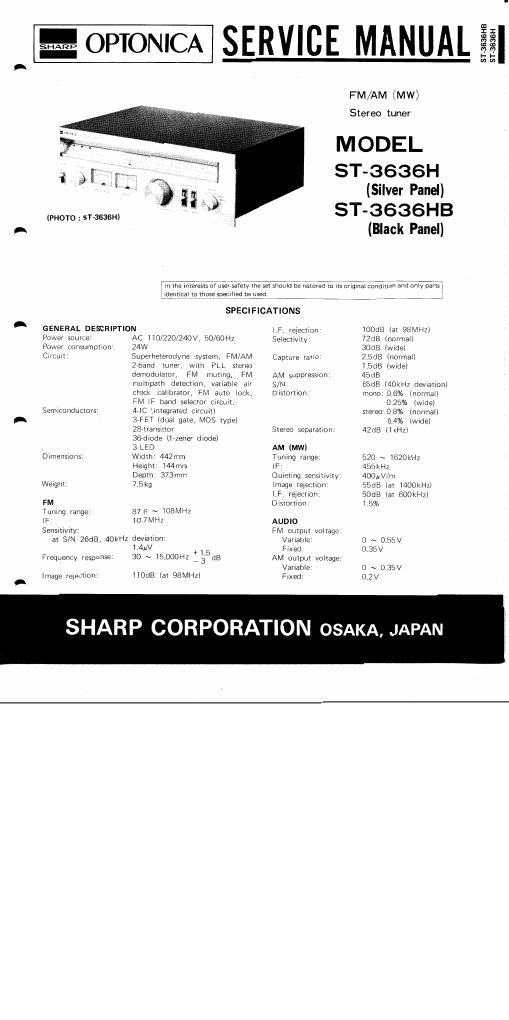Sharp st 3636 h service manual
This is the 38 pages manual for sharp st 3636 h service manual.
Read or download the pdf for free. If you want to contribute, please upload pdfs to audioservicemanuals.wetransfer.com.
Page: 1 / 38
